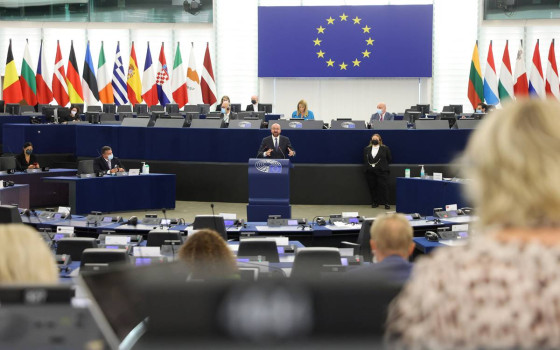
A European agreement encourages consumers to request repair of devices instead of replacing them...and obliges manufacturers to do so

- Europe and Arabs
- Friday , 2 February 2024 15:13 PM GMT
Brussels: Europe and the Arabs
The European Council, which represents the member states of the Union, and the European Parliament today reached a provisional agreement on a directive that encourages the repair of broken or defective goods, also known as the Right to Repair (or R2R) Directive. The legislation agreed today will make it easier for consumers to request repair rather than replacement by making access to repair services easier, faster, transparent and more attractive. According to a statement issued by the Federal Institutions in Brussels, “The temporary agreement applies to all products that require repair in accordance with European Union law.” , places a repair obligation on manufacturers of goods with repair requirements, creates a European information model that provides consumers with basic data on repair service, and unifies national repair information platforms into a European online platform.
“With the agreement reached today, Europe makes a clear choice to repair rather than throw them away. By making it easier to repair defective goods, we not only give new life to our products, we also create good quality jobs, reduce our waste, and reduce our production. Reliance On foreign raw materials and protecting our environment.” According to what the statement quoted Alexia Bertrand, Belgian Secretary of State for Budget and Consumer Protection, whose country holds the current rotating presidency of the European Union.
Priority: repair and reuse
The statement indicated that often, when a vacuum cleaner, dishwasher, coffee machine, or any other product breaks or is defective, it is easier to throw it away and buy a new one than to repair it, especially when the legal warranty expires. The guidance approved by participating lawmakers today creates incentives for consumers to extend the life of a product through repair, which in turn will boost the repair sector, reduce waste and promote more sustainable business models.
To achieve this, the guidance proposes a new set of tools to make repair more attractive to consumers. These include:
Possibility for consumers to ask manufacturers to repair products that are technically repairable under EU law (for example, washing machines, vacuum cleaners or mobile phones)
European repair information form that repairers can provide to consumers, with clear information such as repair conditions, time needed to finish the works, prices, replacement products, etc.
A European online repair platform to facilitate matchmaking between consumers and repairmen
12-month extension of the seller's liability period after repair of the product. In addition to other things












No Comments Found